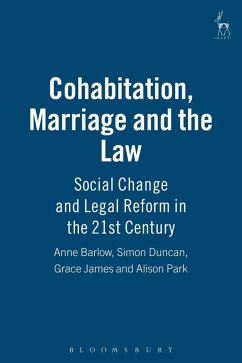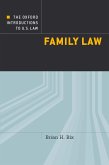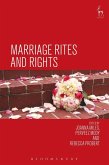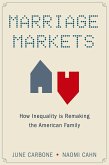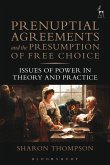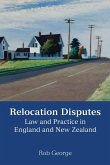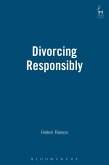Unmarried heterosexual cohabitation is rapidly increasing in Britain and over a quarter of children are now born to unmarried cohabiting parents. This is not just an important change in the way we live in modern Britain; it is also a political and theoretical marker. Some commentators see cohabitation as evidence of selfish individualism and the breakdown of the family, while others see it as just a less institutionalised way in which people express commitment and build their families. Politically, 'stable' families are seen as crucial - but does stability simply mean marriage? At present the law in Britain retains important distinctions in the way it treats cohabiting and married families and this can have deleterious effects on the welfare of children and partners on cohabitation breakdown or death of a partner. Should the law be changed to reflect this changing social reality? Or should it - can it - be used to direct these changes?
Using findings from their recent Nuffield Foundation funded study, which combines nationally representative data with in-depth qualitative work, the authors examine public attitudes about cohabitation and marriage, provide an analysis of who cohabits and who marries, and investigate the extent and nature of the 'common law marriage myth' (the false belief that cohabitants have similar legal rights to married couples). They then explore why people cohabit rather than marry, what the nature of their commitment is to one another and chart public attitudes to legal change. In the light of this evidence, the book then evaluates different options for legal reform.
Using findings from their recent Nuffield Foundation funded study, which combines nationally representative data with in-depth qualitative work, the authors examine public attitudes about cohabitation and marriage, provide an analysis of who cohabits and who marries, and investigate the extent and nature of the 'common law marriage myth' (the false belief that cohabitants have similar legal rights to married couples). They then explore why people cohabit rather than marry, what the nature of their commitment is to one another and chart public attitudes to legal change. In the light of this evidence, the book then evaluates different options for legal reform.

